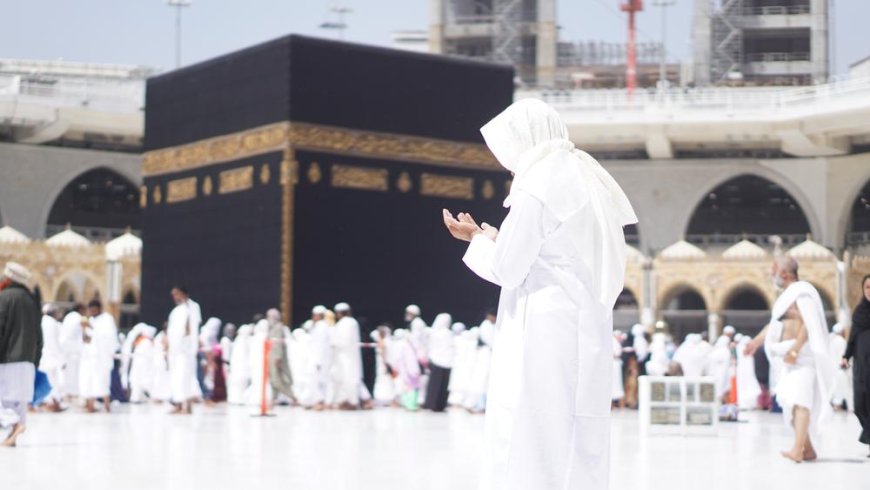Is Umrah obligatory for Muslims?

1.Understanding the Religious Status of Umrah in Islam
Umrah is a holy pilgrimage. It has strong spiritual value in Islam. Though not mandatory, it provides big rewards and satisfaction. It also strengthens a Muslim's connection to Allah. Umrah helps renew faith. This practice shows its spiritual importance despite not being compulsory. Umrah remains highly encouraged, especially for those who can do it. This spiritual journey remains a beautiful opportunity for Muslims. No sin results from skipping Umrah if one can’t perform it.
2. The Difference Between Fard (Obligatory) and Sunnah (Recommended) Acts
Islam categorizes various religious actions into different stages. The Fard and Sunnah are the two major ones among them. Fard refers to those actions all Muslims must complete. Missing these actions without a valid reason leads to sin. A great example of this is praying five times a day. Sunnah refers to practices recommended by the Prophet Muhammad (S.A.W.). These acts are not obligatory but still highly encouraged. Performing Sunnah earns the reward. Umrah falls under the Sunnah category for most Scholars. Its performance displays love and commitment to Islamic practice. Muslim pilgrims can encounter advantages and challenges of performing Umrah, so they should follow the instructions of the guides of Islamic Travels.
3. Why Is Umrah Not Compulsory Like Hajj?
Hajj is obligatory once. Allah commands Hajj for financially able persons. The Quran doesn’t give the same command for Umrah. It doesn't require any specific Islamic month. Hajj occurs once every year. It usually follows different regulations. Umrah offers flexibility in timing. This flexibility enables more individuals to do Umrah. Umrah offers personal growth but not communal unity. The Prophet (S.A.W.) emphasized the Hajj’s obligatory nature but not Umrah’s.
4. The Spiritual Benefits of Performing Umrah
Umrah provides deep spirituality and excellent emotional cleansing. It allows Muslims to seek forgiveness directly from Allah. Its spiritual benefits draw more Muslims each year to Makkah.
There are several advantages of group Umrah package as Muslims can collaborate and communicate with each other during offering rituals in unknown city. Also, they can get spiritual benefits from learning more teachings of Quran and sunnah from each other.
· Performing Umrah wipes out past sins.
· Pilgrims will experience equality as they wear the Ihram.
· This equality in dress removes differences and pride.
· Walking around the Kaaba creates spiritual focus.
· This journey also highlights faith and reward.
· Umrah brings peace and closeness to Allah.
· Pilgrims also feel spiritually after completing the Umrah.
5. Can You Be Exempt from Performing Umrah?
Yes, many Muslims are exempt from performing Umrah. Those who lack financial means are not obligated. Islam doesn’t put any person under more burden. Elderly people or chronically ill individuals also receive an exemption. Mothers with young children can wait. Umrah is an optional act. It is also based on personal circumstances. Allah rewards the pure intention. Exemption shows Islam’s practical nature. No blame or sin falls on those who can’t perform it. Allah knows every heart and effort made in faith.
6. The Role of Umrah in a Muslim's Faith and Practice
Umrah plays an ideal role in strengthening faith. This journey needs patience. You should remain humble and avoid arguments. Such actions improve character and mindfulness in daily life. The journey prepares the heart for greater acts of worship. Many do Umrah to renew their faith. It also leads to more charity. Pilgrims return with new hopes. Experiencing Umrah usually builds good deeds and religious awareness. Even a single visit can transform one’s faith journey.
7. Can Umrah Be Performed Multiple Times?
Yes, Muslims can easily do Umrah more than once. Pilgrims can easily complete different Umrahs during this spiritual journey. They do the Umrah when they travel to the KSA. Some even perform it annually if possible. Every Umrah brings new blessings and spirituality. The Prophet (S.A.W.) did many Umrahs in his lifetime. Repeating Umrah strengthens the connection with Allah. Each performance provides a chance to erase sins. Regular visits to Makkah also help to develop deep spiritual discipline. Islam values trustworthiness over the quantity of Umrahs.
8. Do You Need to Be Physically Able to Perform Umrah?
Physical ability plays an important role in Umrah. This journey includes walking long distances. Elderly and disabled persons will face physical challenges. Islam allows wheelchairs for those needing help. There is no shame in getting help during Umrah. Pilgrims with serious illnesses can postpone their journey. Allah only expects what one can manage with ease. Fatigue or exhaustion can also reduce the experience’s spiritual benefits. Umrah should uplift the soul. Islam values caring for your body and soul.
9. Is Performing Umrah a Personal Choice?
Umrah always remains a deeply personal decision. Each Muslim can decide when and how to perform it. Finances and family needs can affect the decision. There is no deadline and time requirements for the Umrah. No social pressure should change one’s choice to do it. A sincere intention matters more than timing. Some save for years to complete their first Umrah. Others find unexpected opportunities through invitations or gifts. Islam honors every effort made toward this noble journey. Choosing to perform Umrah also shows charity and love. Every Umrah journey offers unique lessons.











































































